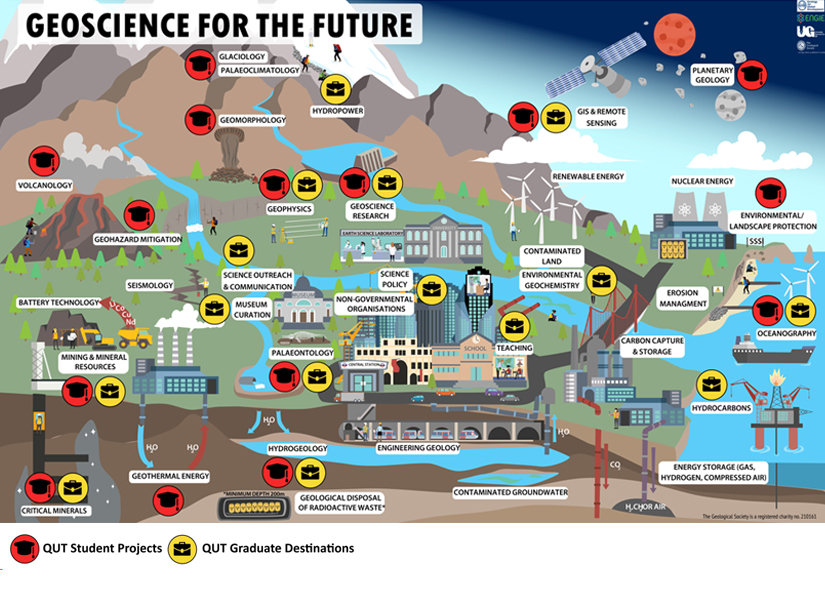
Emelie Dahlskold, 8 October, 2024 | Geoscience for the Future
Exploring the Future of Geoscience: Opportunities and Innovations
As we celebrate Earth Science Week, it’s the perfect time to delve into the diverse field of geoscience. From the depths of the oceans to the far reaches of space, geoscientists are at the forefront of understanding and protecting our planet.
Diverse Fields of Geoscience
Geoscience features diverse specialties, each playing a role in deepening our understanding of Earth’s systems and empowering us to overcome environmental challenges. Here are some examples:
- Volcanology: Studying volcanic activity to predict eruptions and mitigate hazards.
- Seismology: Monitoring earthquakes to understand seismic activity and improve safety.
- Paleontology: Uncovering the history of life on Earth through fossil records.
- Climate Science: Analysing climate patterns to address global warming and climate change.
- Renewable Energy: Developing sustainable energy sources like wind, solar, and hydropower.
- Environmental Protection: Working to preserve natural landscapes and mitigate pollution.
Innovative Technologies in Geoscience
The field of geoscience is rapidly evolving, thanks to cutting-edge technologies that enhance our ability to study and protect the Earth. Some of these innovations include:
- GIS & Remote Sensing: Using satellite imagery and geographic information systems to monitor environmental changes.
- Carbon Capture & Storage: Developing methods to capture and store carbon dioxide to combat climate change.
- Battery Technology: Advancing energy storage solutions to support renewable energy systems.
- Geological Disposal: Safely managing radioactive waste to protect human health and the environment.
Prepare for a Career as a Geoscientist
The QUT Bachelor of Science integrates problem-solving and current research issues with theoretical and hands-on field, laboratory, and modelling work related to the industry. You will gain the necessary knowledge and skills to pursue a career in the resource, environmental, or research sectors.
Experience the excitement of field study, including a thrilling trip to witness an active volcano in New Zealand.
With high demand in the energy, exploration, mining, and environmental consulting sectors, professionals tackle geotechnical, groundwater contamination, natural hazards, and climate change issues. Graduates qualify for membership in esteemed professional societies such as the Geological Society of Australia , the Australian Institute of Geologists, and other overseas professional societies.

The illustration titled Geoscience for the Future was produced by The Geological Society and later edited by QUT Professor Balz Kamber to capture the myriad opportunities available to QUT students in this exciting discipline.
